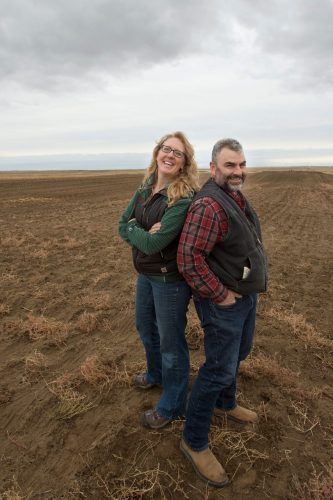Butte-Silver Bow is partnering with the National Center for Appropriate Technology (NCAT) and Montana Technological University to develop a community Sustainability and Resilience Plan. County residents are invited to provide input, learn about the issues, and sign up for project working groups.
The bipartisan infrastructure bill recently passed by Congress represents the nation’s biggest investment in clean energy and providing local communities with the tools to fight climate disruption. These investments have the potential to boost local economic development tied to new sources of energy and to help communities prepare for climate change impacts such as drought, wildfire, and heat waves.
“There are going to be opportunities to boost our economy through new energy development, and Butte is well situated to benefit,” said Butte-Silver Bow Chief Executive J.P. Gallagher. “But we need to do this in a way that works best for our community, and that means planning ahead.” He said that this would include identifying potential locations and infrastructure needs for renewable energy developments such as solar, energy storage systems, or green hydrogen industries. Community engagement will help inform updates to BSB’s zoning code and the county’s Comprehensive Plan.
Gallagher also announced that BSB will participate in a National Science Foundation pilot project for community-based climate adaptation planning. Community workshops will be scheduled in the spring to identify critical community issues and develop local solutions. Several potential issues have been discussed by the three project partners, but priority focus areas will be guided by public input.
BSB residents are encouraged to take an online community survey to prioritize issues of concern, identify development opportunities, and sign up to get involved in the Resilient Butte project. The 5-minute survey is available at www.surveymonkey.com/r/ResilientButte.
One issue of concern is the health risk to vulnerable groups from increasingly smoky summers and the future likelihood of severe heat waves, such as the one that killed hundreds of people last summer in Washington and Oregon. Another vulnerability is growing wildfire risk to Butte’s municipal watersheds in Basin Creek, Moulton and the Big Hole. Concerns also have been raised about the long-term stability of reclamation areas on the Butte Hill as hotter, drier summers desiccate sites that have been revegetated. Butte also may experience population growth as people move away from climate impacts elsewhere, such as megafires in California or coastal flooding.
The adaptation workshops in late spring will be informed by the Montana Climate Assessment, developed by Montana universities to evaluate climate trends and projected impacts to Montana agriculture, forests, water resources, and public health. The workshops will be led by EcoAdapt, a nonprofit in Washington state, and Virginia Tech University, which jointly received a National Science Foundation award to determine the best approach for community-based planning for climate solutions. Butte is among eight communities across the nation selected to participate in this pilot project.
Montana Tech faculty and students will provide technical expertise and research to support the project. The project will tap Tech’s expertise in restoration ecology, environmental engineering, and watershed education. Engineering students will assist with a community energy assessment and greenhouse gas inventory. On March 23, the Montana Tech Public Lecture Series will feature Dr. Cathy Whitlock, a Montana State University Regents Professor and lead author of the Montana Climate Assessment.
“Montana Tech appreciates the opportunity to partner with Butte-Silver Bow, NCAT and our community to support a healthy and prosperous future,” said Chancellor Les Cook. “There are issues that we need to address, and there are new opportunities that we would be wise to consider.”
NCAT will coordinate community participation and educational programs, said Executive Director Steve Thompson. “NCAT provides technical assistance across the nation to develop practical solutions in support of community sustainability, regenerative agriculture, and clean energy. We have offices in 10 states, but Butte has been our headquarters for 46 years. We look forward to supporting our hometown through the Resilient Butte project.”
NCAT AmeriCorps VISTA member Rylie Yaeger will be help coordinate opportunities for local residents to get involved in the planning process. “We’re inviting community members to participate in conversations about sustainability, climate resilience and economic development opportunities for Butte,” Yaeger said.
To learn more or get involved, contact Rylie Yaeger at Ryliey@ncat.org or 494-6644. Or find Resilient Butte on Facebook or Instagram.

